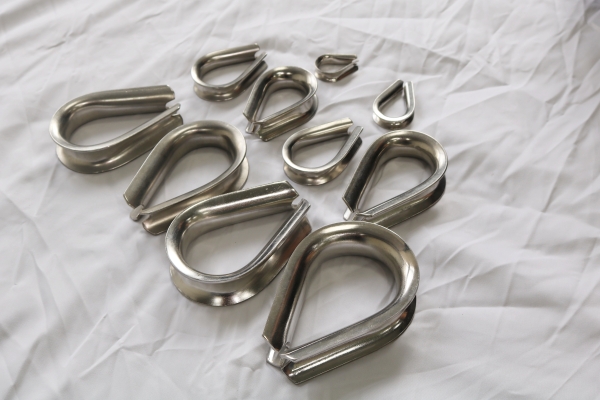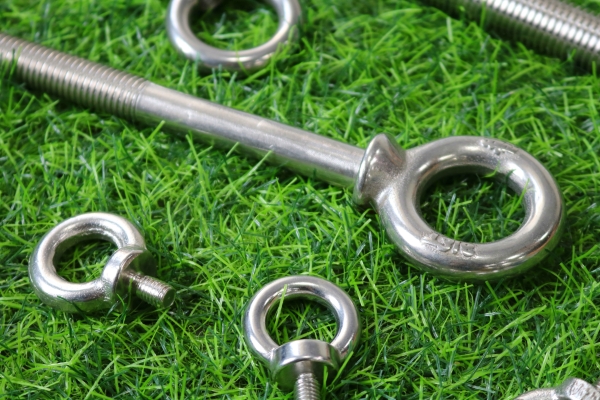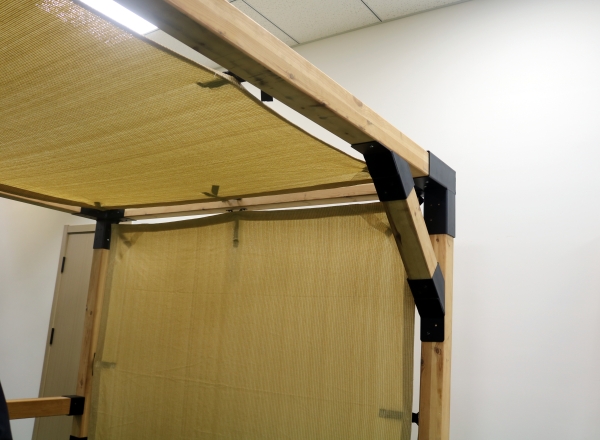Table of Contents
مستويات مقاومة التآكل للبراغي المصنوعة من الفولاذ المقاوم للصدأ
في الختام، يعد فهم الدرجات المختلفة لمسامير الفولاذ المقاوم للصدأ وخصائص مقاومتها للتآكل أمرًا ضروريًا لاختيار النوع المناسب لتطبيقات معينة. من خلال النظر في عوامل مثل البيئة التي سيتم استخدام البراغي فيها ومستوى مقاومة التآكل المطلوب، فمن الممكن اختيار مسامير الفولاذ المقاوم للصدأ التي ستوفر أداءً ومتانة طويلة الأمد. يمكن أن يؤدي التركيب والصيانة الصحيحة لمسامير الفولاذ المقاوم للصدأ إلى تعزيز خصائص مقاومتها للتآكل، مما يضمن استمرارها في الأداء بفعالية في البيئات المسببة للتآكل.
مقارنة القوة والمتانة بين درجات مختلفة من مسامير الفولاذ المقاوم للصدأ
عند مقارنة قوة ومتانة الدرجات المختلفة من مسامير الفولاذ المقاوم للصدأ، من المهم مراعاة المتطلبات المحددة للتطبيق. على سبيل المثال، إذا كانت مقاومة التآكل هي الاهتمام الرئيسي، فقد تكون البراغي من الدرجة 316 هي الخيار الأفضل. من ناحية أخرى، إذا كانت هناك حاجة إلى قوة شد عالية، فقد تكون البراغي من الدرجة 410 أكثر ملاءمة.
من المهم أيضًا مراعاة الظروف البيئية التي سيتم استخدام البراغي فيها. على سبيل المثال، إذا كانت البراغي ستتعرض للمياه المالحة أو المواد الكيميائية القاسية، فقد تكون البراغي من الدرجة 316 هي الخيار الأفضل نظرًا لمقاومتها الفائقة للتآكل. في المقابل، إذا تم استخدام البراغي في بيئة جافة مع الحد الأدنى من التعرض للرطوبة، فقد تكون مسامير الدرجة 304 كافية.
في الختام، يعد فهم الدرجات المختلفة لمسامير الفولاذ المقاوم للصدأ أمرًا ضروريًا لاختيار المسمار المناسب لتطبيق معين. . من خلال النظر في عوامل مثل مقاومة التآكل، وقوة الشد، والظروف البيئية، فمن الممكن اختيار الترباس الذي سيوفر القوة والمتانة اللازمة لهذه المهمة. سواء كانت درجة 304، أو درجة 316، أو درجة 410، فإن كل درجة من مسامير الفولاذ المقاوم للصدأ لها خصائصها الفريدة التي تجعلها مناسبة لمجموعة متنوعة من التطبيقات.
Stainless steel bolts are commonly used in various industries due to their corrosion resistance and durability. However, not all stainless steel bolts are created equal. There are different grades of stainless steel bolts available, each with its own unique properties and characteristics. Understanding the differences between these grades is essential for selecting the right bolt for a specific application.
One of the most commonly used grades of stainless steel bolts is Grade 304. This grade is known for its excellent corrosion resistance and is often used in applications where exposure to moisture or chemicals is a concern. Grade 304 bolts are also easy to clean and maintain, making them a popular choice for food processing and medical equipment.
Another popular grade of stainless steel bolts is Grade 316. This grade is similar to Grade 304 but contains additional molybdenum, which enhances its corrosion resistance, especially in harsh environments such as marine or coastal areas. Grade 316 bolts are also known for their high tensile strength, making them suitable for heavy-duty applications.
In addition to Grades 304 and 316, there are other grades of stainless steel bolts available, each with its own unique properties. For example, Grade 410 stainless steel bolts are known for their high strength and hardness, making them ideal for applications where high mechanical properties are required. However, Grade 410 bolts are not as corrosion resistant as Grades 304 and 316, so they may not be suitable for all applications.

When comparing the strength and durability of different grades of stainless steel bolts, it is important to consider the specific requirements of the application. For example, if corrosion resistance is a primary concern, Grade 316 bolts may be the best choice. On the other hand, if high tensile strength is required, Grade 410 bolts may be more suitable.
It is also important to consider the environmental conditions in which the bolts will be used. For example, if the bolts will be exposed to saltwater or harsh chemicals, Grade 316 bolts may be the best option due to their superior corrosion resistance. In contrast, if the bolts will be used in a dry environment with minimal exposure to moisture, Grade 304 bolts may be sufficient.
In conclusion, understanding the different grades of stainless steel bolts is essential for selecting the right bolt for a specific application. By considering factors such as corrosion resistance, tensile strength, and environmental conditions, it is possible to choose a bolt that will provide the necessary strength and durability for the job. Whether it is Grade 304, Grade 316, or Grade 410, each grade of stainless steel bolt has its own unique properties that make it suitable for a variety of applications.







